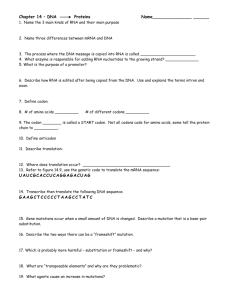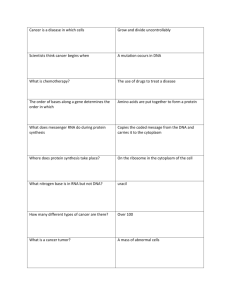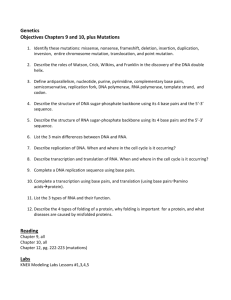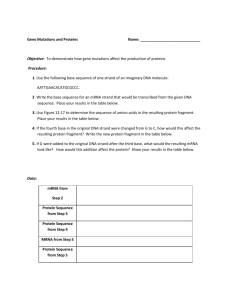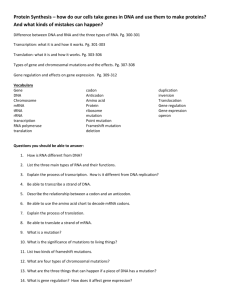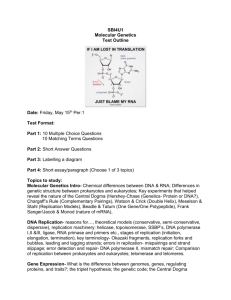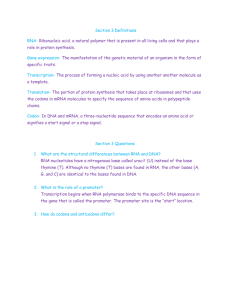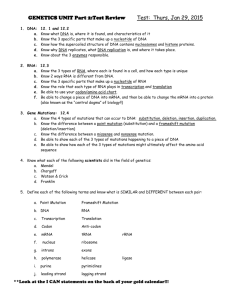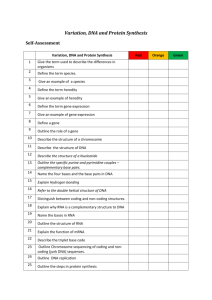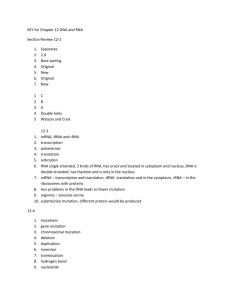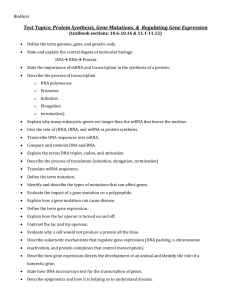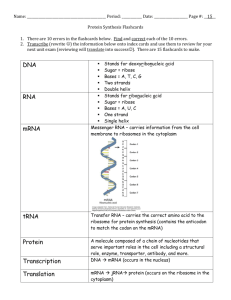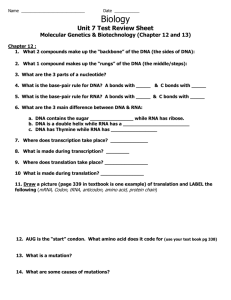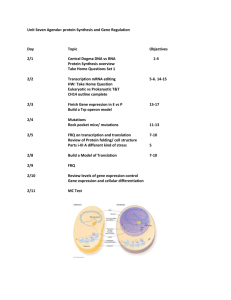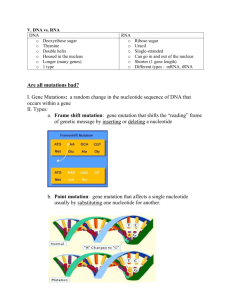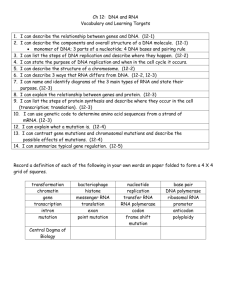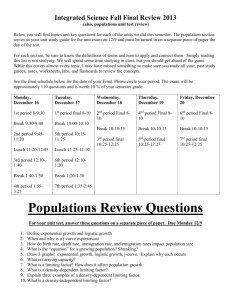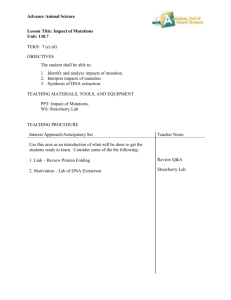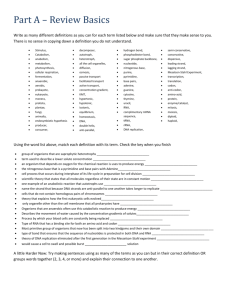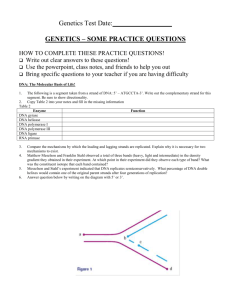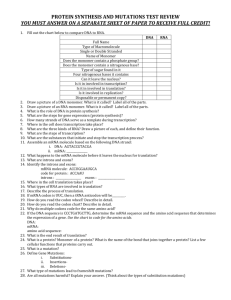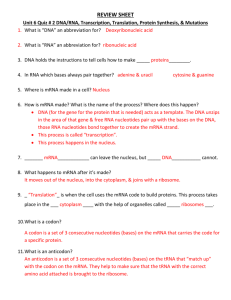Ch 10 Test Topics: DNA, RNA, Protein Synthesis & Mutations
advertisement
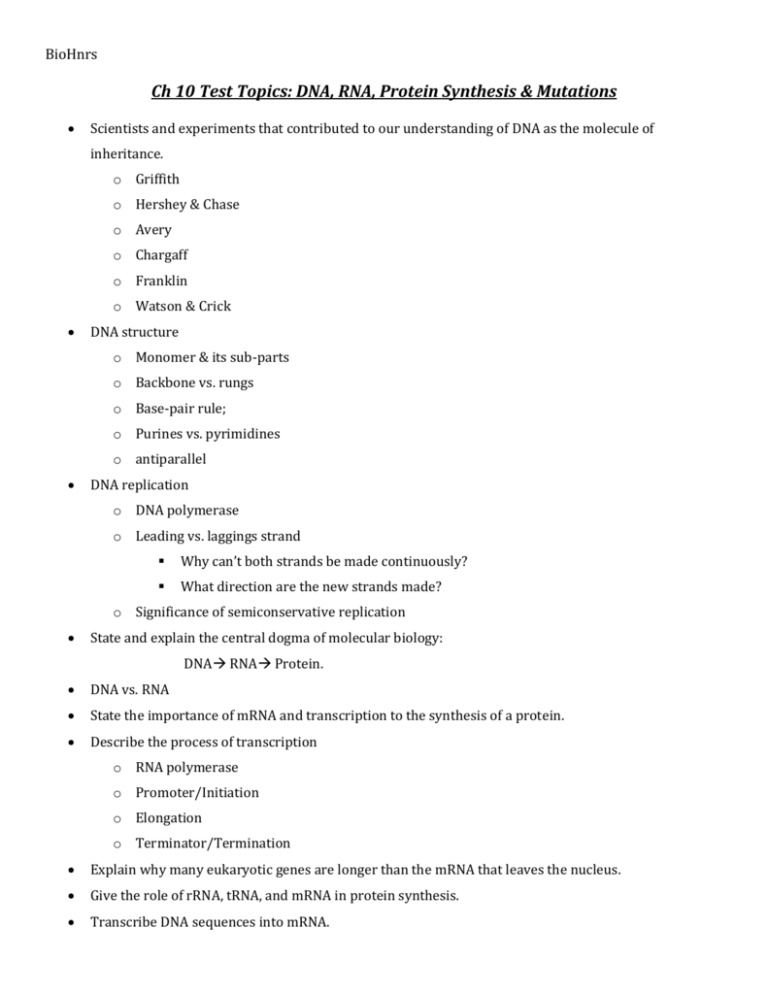
BioHnrs Ch 10 Test Topics: DNA, RNA, Protein Synthesis & Mutations Scientists and experiments that contributed to our understanding of DNA as the molecule of inheritance. o Griffith o Hershey & Chase o Avery o Chargaff o Franklin o Watson & Crick DNA structure o Monomer & its sub-parts o Backbone vs. rungs o Base-pair rule; o Purines vs. pyrimidines o antiparallel DNA replication o DNA polymerase o Leading vs. laggings strand Why can’t both strands be made continuously? What direction are the new strands made? o Significance of semiconservative replication State and explain the central dogma of molecular biology: DNA RNA Protein. DNA vs. RNA State the importance of mRNA and transcription to the synthesis of a protein. Describe the process of transcription o RNA polymerase o Promoter/Initiation o Elongation o Terminator/Termination Explain why many eukaryotic genes are longer than the mRNA that leaves the nucleus. Give the role of rRNA, tRNA, and mRNA in protein synthesis. Transcribe DNA sequences into mRNA. Compare and contrast DNA and RNA. Explain the terms DNA triplet, codon, and anticodon. Describe the process of translation (initiation, elongation, termination) Translate mRNA sequences. Define the term mutation. Identify and describe the types of mutations that can affect genes. o Point vs. Frameshift Evaluate the impact of a gene mutation on a polypeptide. Explain how a gene mutation can cause disease. Compare and contrast gene mutations with chromosomal mutations Identify and describe the types of mutations that can affect chromosomes o Duplication o Deletion o Translocation o Inversion
